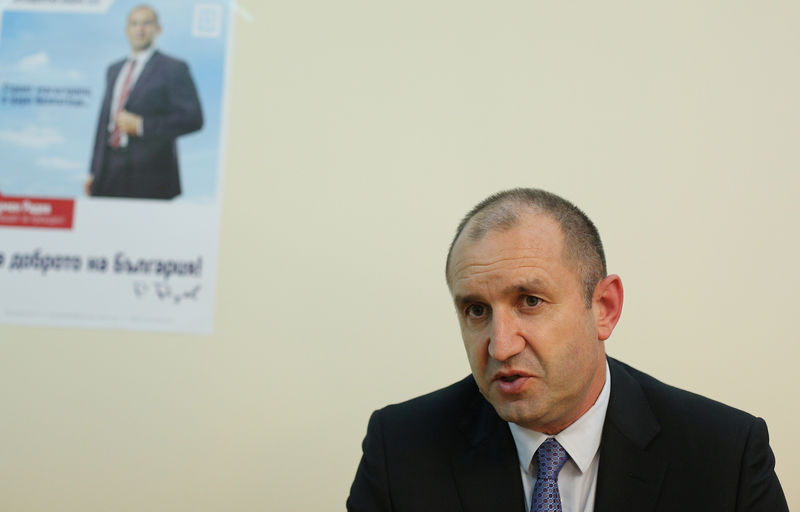By Angel Krasimirov
SOFIA (Reuters) - The main opposition contender in Bulgaria's presidential election vowed on Monday to seek better relations with Russia and a lifting of European Union sanctions against Moscow that he called harmful to both sides.
Rumen Radev, a former air force commander, also said in an interview with Reuters that he would pursue a balanced foreign policy taking into account Bulgaria's membership in NATO and the EU but based on national interest.
Radev is the closest rival to Tsetska Tsacheva, the candidate of the ruling centre-right GERB party in the Nov. 6 vote. Analysts say the Black Sea state's next president will most likely emerge from a close run-off between them.
"Bulgaria is a member of NATO and the EU, this is our strategic choice which has no alternative, but we should not look on Russia as an enemy," said Radev, whose Socialist Party (BSP) is the largest opposition force in Bulgaria.
The BSP, successor to the old totalitarian Communist Party, is keen to repair damaged ties with historical ally Moscow. It has blamed President Rosen Plevneliev for dividing Bulgarians after criticising Russia over its annexation of Crimea and alleged "hybrid warfare", including cyber attacks and military overflights, he said is aimed at destabilising the EU.
Bulgaria, seen as the Kremlin's most pliable satellite in Soviet times, has long been an anomaly in Europe, a country within EU and NATO structures yet feeling close to Russia.
"Europhilia does not mean Russophobia," Radev said. "Anti-Russian rhetoric carry unnecessary risks."
EU sanctions imposed on Moscow over its role in pro-Russian separatist conflict in Ukraine have hurt Bulgaria financially as it relies heavily on Russia for energy and remains a popular destination for Russian tourists.
"Definitely, I will work towards lifting the sanctions," the 53-year-old Radev said. "Crises should be resolved with political tools and not economic."
Bulgaria's presidency is largely ceremonial but the outcome of the vote will be a pointer for the 2018 general election. Prime Minister Boiko Borisov has repeatedly said his cabinet will resign if Tsacheva loses the first-round vote on Nov. 6.
Most power in the country of 7.2 million rests with the prime minister and parliament, but the president leads the armed forces and can veto legislation, sign international treaties and appoint ambassadors.
Radev said that Bulgaria needs to improve public sector transparency, advance judiciary reform and administrative services online if it is to succeed in its fight against rampant corruption.
The EU's poorest member state has been blocked from joining its passport-free Schengen travel zone due to high levels of graft.
